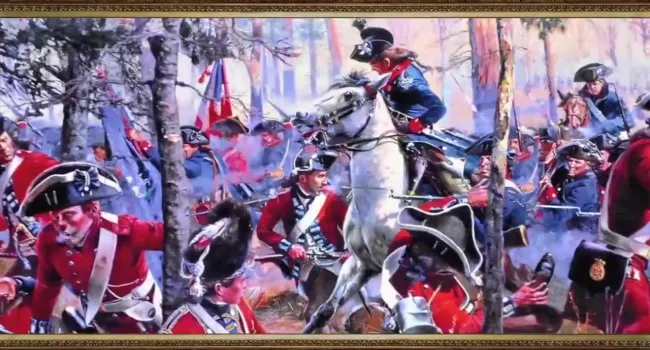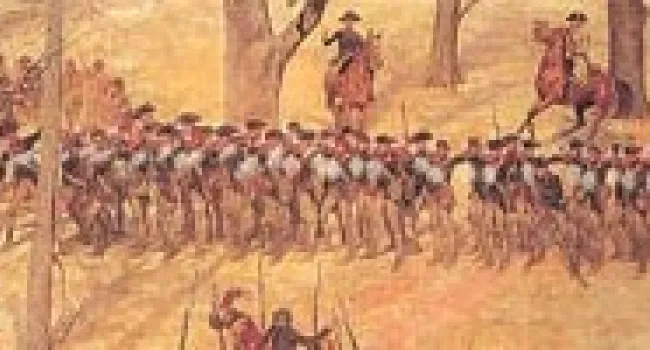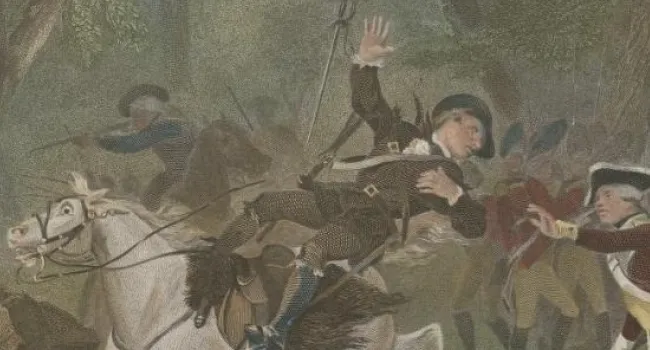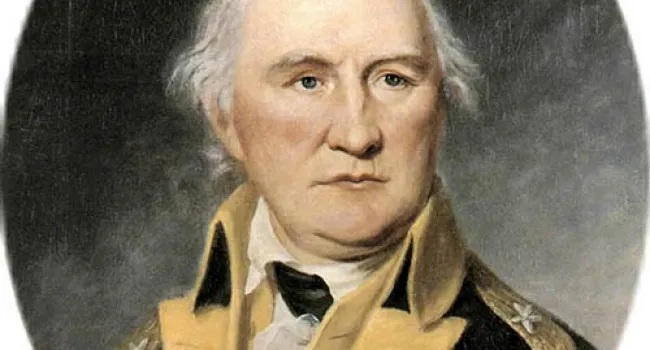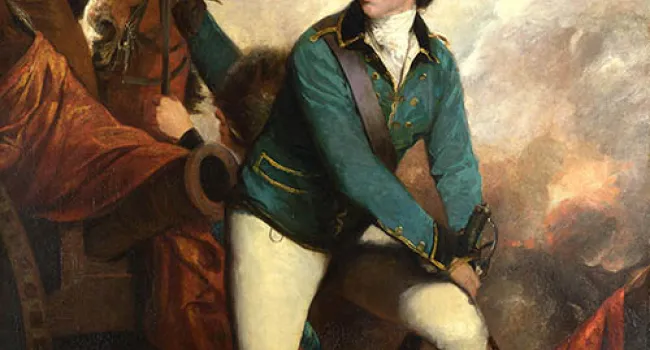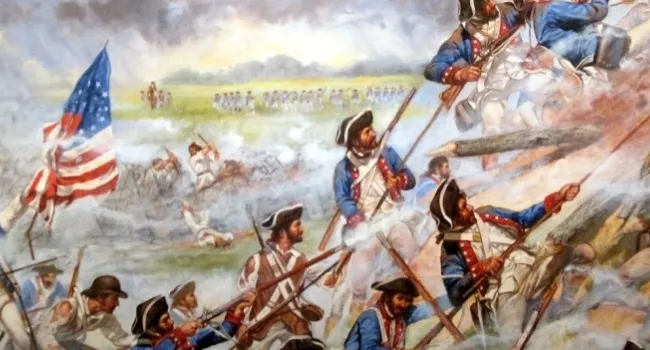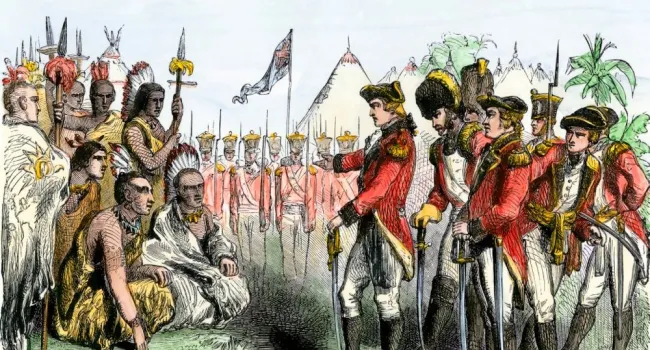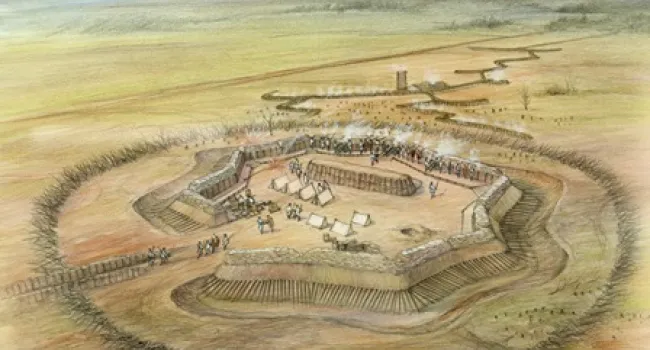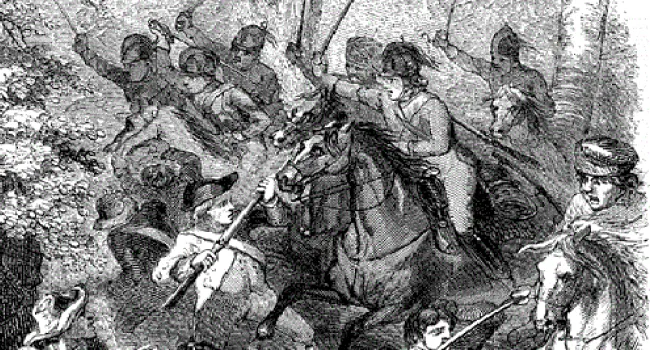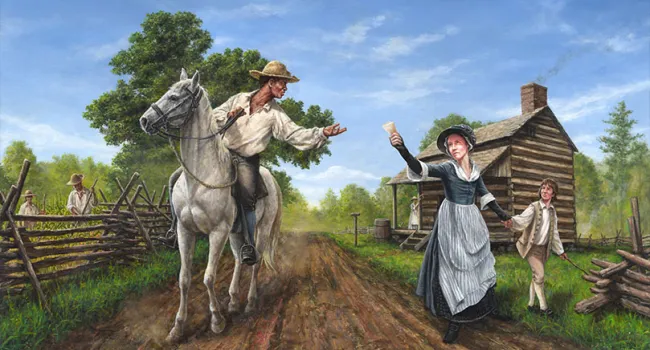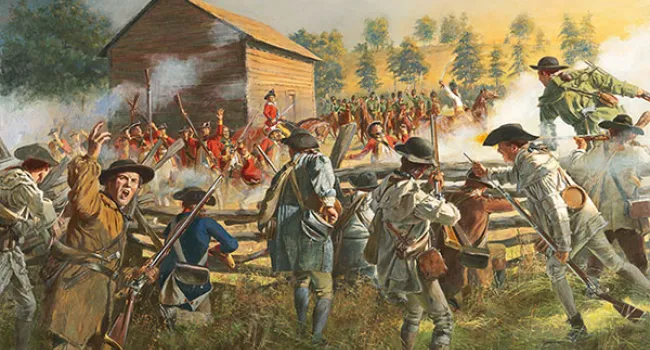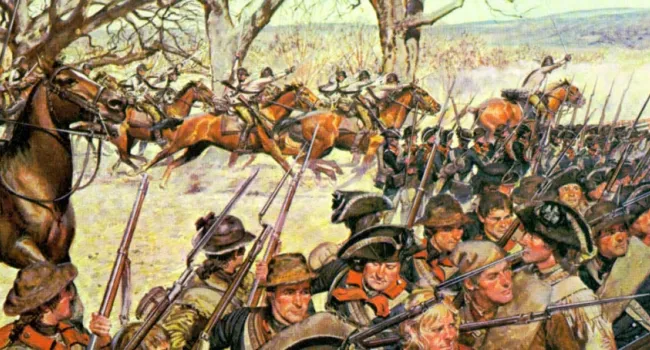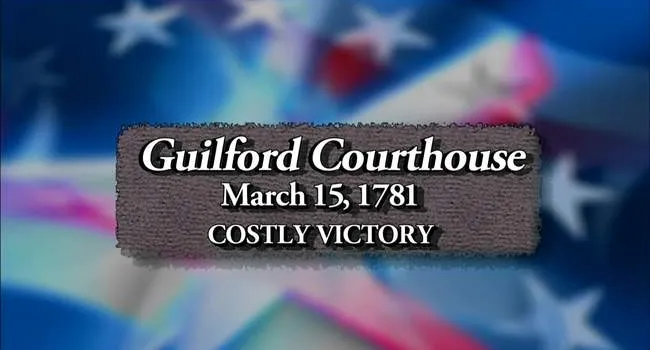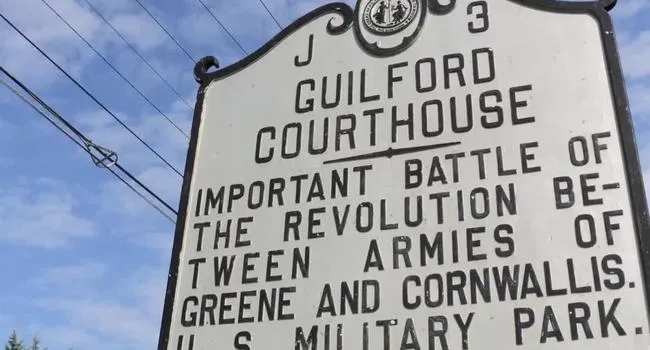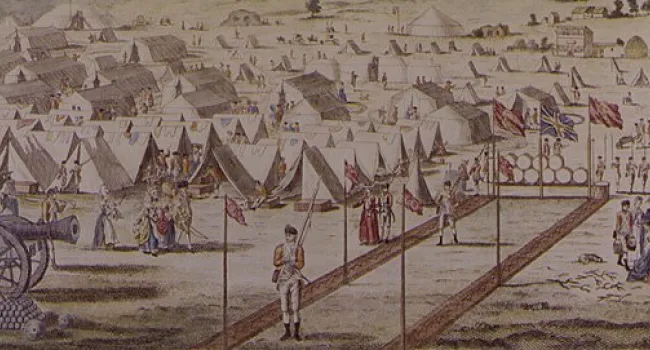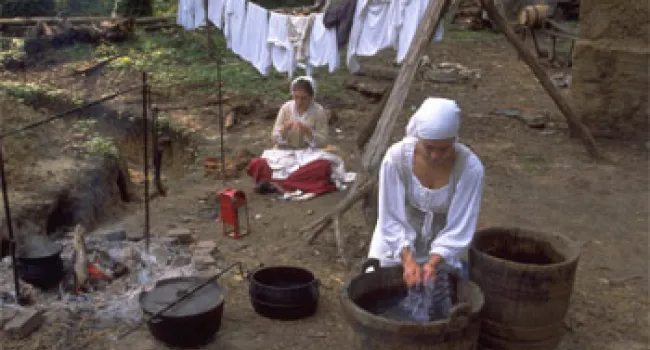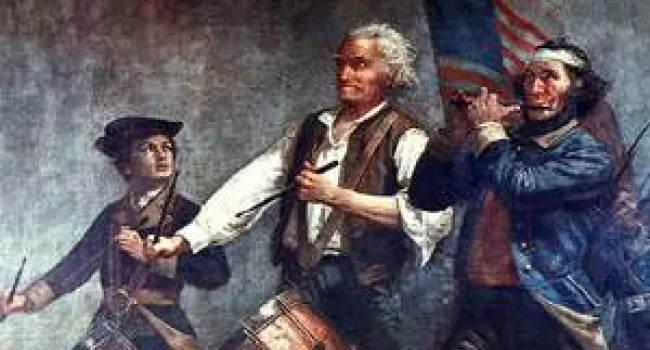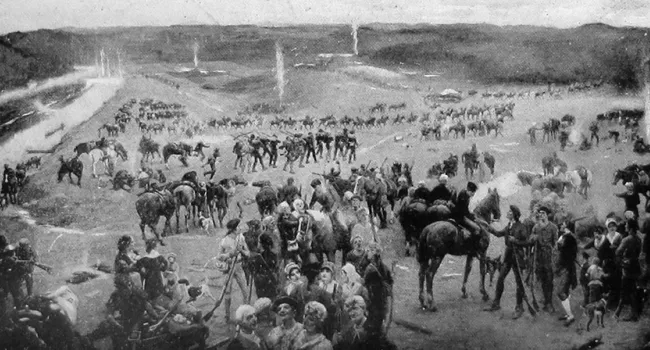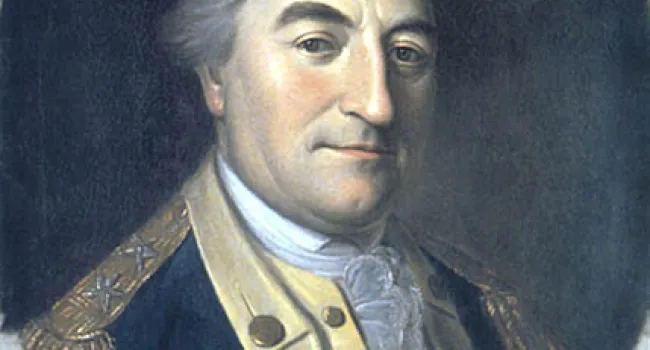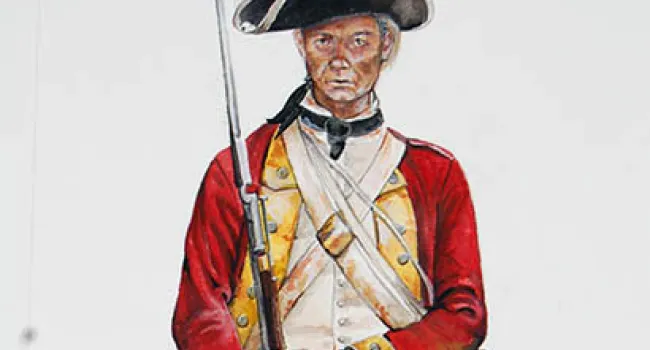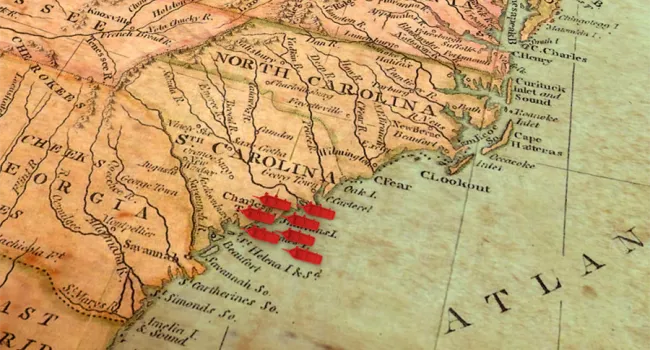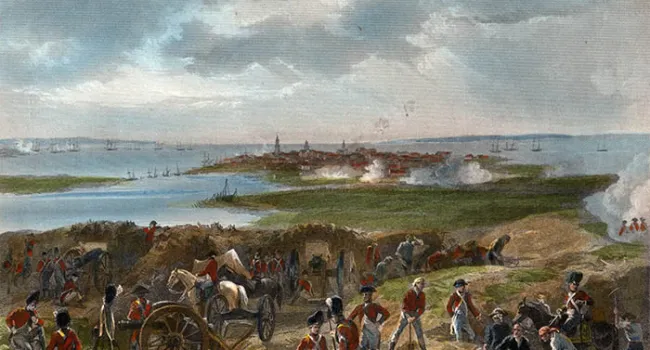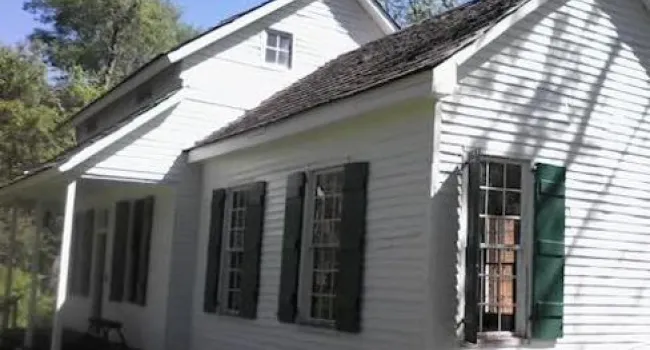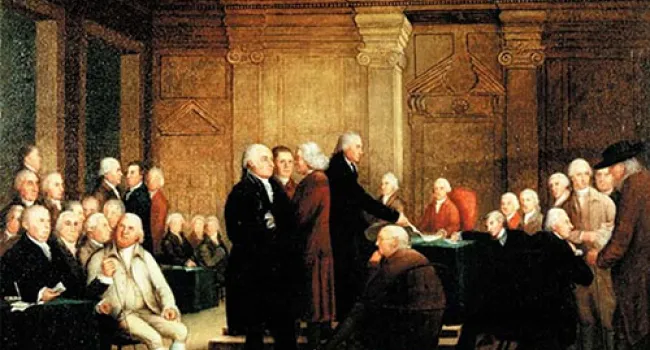The Southern Campaign of the American Revolution, picks up the story after the fall of Charleston in 1780. After catastrophes at The Waxhaws and Camden, victories in battles and skirmishes such as Brattonsville, Musgrove Mill, Kings Mountain, and Cowpens expelled the British invaders and defeated their loyalist friends, leading to the surrender at Yorktown, Virginia. The Battle of Guilford Courthouse (North Carolina) and the siege of Ninety Six are also featured in the series.
The Southern Campaign was critical in determining the outcome of the American Revolutionary War, yet the South’s importance has been downplayed in most historical accounts to date. SCETV has previously produced a documentary for public television, The Mapping of Kosciusko’s Tunnel, about archeological work at Ninety Six National Historic Site.
Each of The Southern Campaign eight modules include a short video episode, photos, maps and online curriculum for South Carolina teachers. Below find a quick index to the modules and direct links to the video episodes.
Funding and support for this production is provided by The National Park Service, The Self Foundation Family, The George Washington Endowment Fund of the National Society of the Sons of the American Revolution, The South Carolina State Society of the Sons of the American Revolution, and a contribution from Dr. Charles B. Hanna.
Standards
- 4.2.CE Examine the economic and political motivations for colonists to declare independence from Great Britain.
- 4.2.CX Contextualize South Carolina’s role in the development of the new nation.
- 8.2.CO Compare the motives and demographics of loyalists and patriots within South Carolina and the colonies.
- This indicator was developed to encourage inquiry into the economic, political, and social motivations of the patriots and the loyalists in the era of the American Revolution.
- 8.2.CE Explain the economic, political, and social factors surrounding the American Revolution.
- This indicator was developed to encourage inquiry into how the colonies began to unify to create a distinctive American identity over the course of events of the American Revolution.
- 8.2.CX Contextualize the roles of various groups of South Carolinians as the colonies moved toward becoming an independent nation.
- This indicator was developed to encourage inquiry into the motivations of colonists during the American Revolution and the progression of conflict and failed compromise that ultimately led to revolution.
Resources
You need to be logged in to listen to view this content. Create an account now; it's quick, easy, and free!
Log In to ViewLa Campaña del Sur de la Revolución American) retoma la historia después de la caída de Charleston en 1780. Después de catástrofes en el Waxhaws y Camden, victorias en batallas y escaramuzas como Battonsvillie, Musgrove Mill, Kings Mountain y Cowpens expulsaron a los invasores británicos y derrotaron a sus amigos leales, lo que llevo a la rendición en Yorktown, Virginia. El Palacio de la Batalla de Guilford (Carolina del Norte) y el asedio de Ninety Six también aparecen en la serie.
La Campaña del Sur fue fundamental para determinar el resultado de la Guerra Revolucionaria Estadounidense, sin embargo, la importancia del Sur ha sido minimizada en la mayoría de los relatos históricos hasta la fecha. SCETV ha producido previamente un documental para la televisión pública, The Mapping of Kosciuszko’s Tunnel ( El Mapeo del túnel De Kosciuszko ), sobre trabajos arqueológicos en el Nacional Histórico sitio de Ninety Six.
Cada uno de los ocho módulos de la Campana del Sur incluye un breve episodio de video, fotos, mapas y currículo en línea para los maestros de Carolina del Sur. Debajo encontraras un índice de los módulos y enlaces directos de los videos.
FULL MODULE | VIDEO EPISODE | |
1 | ||
2 | ||
3 | ||
4 | ||
5 | ||
6 | ||
7 | ||
8 | Ninety Six: End Game (CC) |
La financiacion y el apoyo a esta producción son proporcionadas por The National Park Service, The Self Foundation Family, The George Washington Endowment Fund of the National Society of the Sons of the American Revolution, The South Carolina State Society of the Sons of the American Revolution, y una contribución del Dr. Charles B. Hanna.
